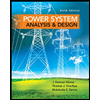In the DC Circuits lab , "Ohm's Law", the resistance of the four load were measured and also their accepted values were calculated: For Load A: Resisitance=4.4 kΩ (accepted value) caluculated using formula =R= R1+ R2 + R3 Resisitance=4.42kΩ (experimental value) For Load B: Resisitance=0.47 kΩ (accepted value) caluculated using formula =R= 1/(1/R1+ 1/R2 + 1/R3) Resisitance=0.47kΩ (experimental value) For Load C: Resisitance=1.95 kΩ (accepted value) caluculated using formula =R= R1+(( R2*R3)/R2 +R3) Resisitance=1.95kΩ (experimental value) For Load D: Resisitance=1.08 kΩ (accepted value) caluculated using formula =R= ((R1+ R2)* R3)/R1+R2+R3 Resisitance=1.08kΩ (experimental value) Percent Discrepancy for each load were 0 What's the conclusion then?
In the DC Circuits lab , "Ohm's Law", the resistance of the four load were measured and also their accepted values were calculated:
For Load A: Resisitance=4.4 kΩ (accepted value) caluculated using formula =R= R1+ R2 + R3
Resisitance=4.42kΩ (experimental value)
For Load B: Resisitance=0.47 kΩ (accepted value) caluculated using formula =R= 1/(1/R1+ 1/R2 + 1/R3)
Resisitance=0.47kΩ (experimental value)
For Load C: Resisitance=1.95 kΩ (accepted value) caluculated using formula =R= R1+(( R2*R3)/R2 +R3)
Resisitance=1.95kΩ (experimental value)
For Load D: Resisitance=1.08 kΩ (accepted value) caluculated using formula =R= ((R1+ R2)* R3)/R1+R2+R3
Resisitance=1.08kΩ (experimental value)
Percent Discrepancy for each load were 0
What's the conclusion then?
Lab Experimental:
Trending now
This is a popular solution!
Step by step
Solved in 2 steps




